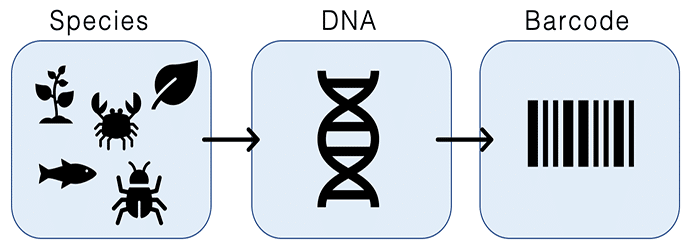Just before Life Technologies purchased the start-up company Ion Torrent, the fledgling company was dealing with a torrent of another kind—worldwide media interest in its new sequencing technology, which promised to bring the price of next-generation, massively parallel sequencing down to $1,000 per run. Since that dramatic announcement in the summer of 2011, Life Technologies and Ion Torrent have introduced a new exon-only sequencer which promises to deliver a human genome in one day- for $1,000.
So, how does Ion Torrent work?
Ion Torrent takes a detour from the dominant optics-based technology found in Illumina’s sequencers. In a previous article by James Hadfield, we were briefly introduced to Ion Torrent along with the optical based systems of NGS.
Optics-based sequencers use visible light, collecting photons from arrays and forming a visual image to detect how bases are incorporated into the genome. Optics-based technology, while extraordinarily accurate, also remains extraordinarily expensive.
Instead, Ion Torrent combines computer software with integrated circuits and complementary metal-oxide semiconductors (CMOS) as used in digital cameras, laptop computers and mobile phones. The technology also adopts an electrochemical detection system called ion-sensitive field-effect transistors (ISFET) which can detect ions as they are released by DNA polymerase during sequencing by DNA synthesis. All of these electronics are focused on detecting and analyzing the release of a hydrogen ion (or proton) which occurs each time a nucleotide triphosphate is added. The proton release causes a slight pH shift which is detected by a CMOS sensor.
Each chip has at least 1.2 million sensors. These are composed of a well containing the dNTP and an acrylamide bead with a DNA template. Just beneath the well lies the metal oxide sensing layer, which itself lies over a sensor plate and floating metal “gate” that transmits electronic information (the pH changes) to the semiconductor.
How do you use it?
To use the Ion Torrent sequencer, prepare genomic DNA like you would for any other sequencer (fragment DNA, ligate to adapters and clonally amplify your adapter-ligated libraries onto beads). DNA polymerase and primers are bound to templates and pipetted into the loading port. Beads are inserted into the individual sensor wells by spinning the chip in a centrifuge.
During sequencing, the four bases (A, T, G, and C) are introduced one at a time during the run. A nucleotide complementary to the base on the template is incorporated into the growing genome strand by DNA polymerase. Then, signal processing software measures incorporation and filters out low-accuracy readings. Although not quite as accurate as optically based methods, initial reads had accuracies of 98% and, at the time of writing, this is claimed to exceed 99%.
Westly, E. (2012). Device brings $1,000 genome within reach. Technology Review. https://www.technologyreview.com/news/426603/device-brings-1000-genome-within-reach/
Rothberg, J.M., et al. (2011). An integrated semiconductor device enabling non-optical genome sequencing. Nature, 475, 348-352. DOI: 10.1038/nature10242.






